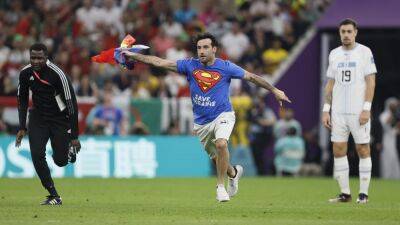Players risk suffering heat stroke in Qatar during World Cup, says physiologist
DOHA : Players are at risk of suffering heat stroke and could make poor decisions when playing or training in high temperatures at the World Cup in Qatar, physiologist Mike Tipton told Reuters on Thursday.
With the temperature hovering above 30 degrees Celsius (86 Fahrenheit) in Doha, Wales rescheduled their training session on Thursday, moving it from the afternoon to evening when the weather is cooler.
Qatar is unusually hot and humid for this time of the year, but the weather is likely to cool down as the Nov. 20-Dec. 18 World Cup progresses into late autumn.
This year's World Cup marks the first time the global showpiece event has been moved from its regular slot of June and July.
"We were sweating just walking around the hotel," Wales forward Mark Harris told reporters. "We went out for a walk this morning at about 11 and it was very warm."
According to Tipton, a professor of human and applied physiology at Britain's University of Portsmouth, playing in extreme heat can not just affect the players' physiological function but psychological too.
"They (the effects) range from feeling faint due to being unable to exercise to a heat stroke, which is a serious medical condition," Tipton said.
"There's another aspect, which is when people get hot, they tend to make poor decisions... They may decide to exercise even harder, which can accelerate their problems with heat."
In order to cope with the heat, managers could be forced to change the playing style of their teams, opting to play at a much slower pace, Tipton added.
"You don't need to worry about overheating if you're playing football in Manchester or Liverpool," he said.
"But if you're playing in southern Europe or South America, then the style of play has to change because






